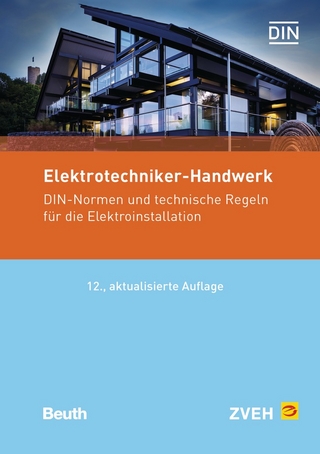
Advances in Nanostructures
Elsevier - Health Sciences Division (Verlag)
978-0-443-13819-5 (ISBN)
- Noch nicht erschienen (ca. September 2024)
- Versandkostenfrei innerhalb Deutschlands
- Auch auf Rechnung
- Verfügbarkeit in der Filiale vor Ort prüfen
- Artikel merken
Dr Sanjeev Gautam is leading an independent research group, Advanced Functional Materials Lab, at the Panjab University, India. He completed his PhD degree (2007) in Condensed Matter Physics from the Centre of Advanced Study in Physics, Panjab University. Dr Sanjeev has about 25+ years of experience in materials science research, especially in synchrotron radiation research such as XAS, XRS, HRXRD, EXAFS, XMCD, etc. Before joining Panjab University, he worked for about 7 years in Korea Institute of Science and Technology (KIST) as a beamline postdoc for Research/development/support at Pohang Accelerator Lab, South Korea. He has secured several International and National grants to work in the field of nanotechnology sustainable energy, food technology, catalysts, and environmental safety. He published several international journal articles, and 8 book chapter. Dr. Jitendra Pal Singh is currently working as Ramanujan Fellow at Manav Rachna University, Faridabad, Haryana, India. Dr. Singh earned his PhD from the Govind Ballabh Pant University of Agriculture and Technology, Pantnagar, Uttarakhand, India. He has been associated with Pohang Accelerator Laboratory, Pohang, South Korea, prior to his current appointment. Dr Dibya Prakash Rai is an associate professor at Mizoram University. He completed his PhD degree from Mizoram University and Post doctorate from Computational Science Research Centre, Beijing, China. Dr. Rai is a prolific researcher who has published several articles in national and international peer reviewed journals. Dr Rai is one of the founders in establishing the Physical Sciences Research Center (PSRC), the first research lab for Physical Sciences in Pachhunga University College. Dr. Rai has expertise in Density Functional Theory (DFT) and his research interests include the use of DFT in analyzing and predicting different functional properties of materials. Dr. Anuj Kumar is a Professor in the School of Computer Science Engineering & Applications at D. Y. Patil International University, Pune, India. Before joining D. Y. Patil International University, he served as an Associate Professor at the University of Petroleum and Energy Studies (UPES), Dehradun, India. He earned his Master's and doctoral degrees in Mathematics from G. B. Pant University of Agriculture and Technology, India. His primary research interest lies in computational mathematics. He has authored numerous research articles published in both national and international journals of high repute. Additionally, he published four books with esteemed international publishers. Dr. Ankitendran Mishra is a Researcher in Centre for Bio Microsystems (Brain Science Institute), Korea Institute of Science and Technology. He obtained his Ph.D. from Department of Metallurgical Engineering, IIT BHU, Varanasi, India, in the field of erosion and hot corrosion. He is an experienced faculty member and researcher with a demonstrated history of working in the field of hot corrosion and erosion of steels. His research interests include atomic force microscopy, mechanical testing, scanning electron microscopy, XRD, statistical analysis, and more.
1. Introduction to Nanostructure and Their Microscopic Characterization
2. Mathematical and Computational Aspect of Nanostructure Growth
3. Theoretical Methods for Physical Characterization of Nanostructures
4. Physical Deposition Methods of Nanostructures
5. Chemical Methods for Specialized Nanostructure
6. Advanced chemical methods for metal oxide nanostructures
7. Ion Beam Tools for Nanostructured Thin Films of Functional Oxides
8. Focused Ion Beam Methodology for Nano-structuring
9. Effect of Laser Irradiation on ferrite nanostructures
10. Nanostructures using 3D-printing
11. Structural Phase Transition, Electronic and Mechanical Properties of NaVO{sub|3}: A DFT study
12. Nanostructures for Energy Harvesting
13. Advanced Nanostructures for Energy Applications
14. Advanced Nanostructures for Smart Healthcare
15. X-ray tools for characterising nanostructures: Computational aspects
| Erscheint lt. Verlag | 1.9.2024 |
|---|---|
| Reihe/Serie | Micro & Nano Technologies |
| Verlagsort | Philadelphia |
| Sprache | englisch |
| Maße | 191 x 235 mm |
| Themenwelt | Technik ► Elektrotechnik / Energietechnik |
| Technik ► Maschinenbau | |
| ISBN-10 | 0-443-13819-2 / 0443138192 |
| ISBN-13 | 978-0-443-13819-5 / 9780443138195 |
| Zustand | Neuware |
| Haben Sie eine Frage zum Produkt? |
aus dem Bereich


